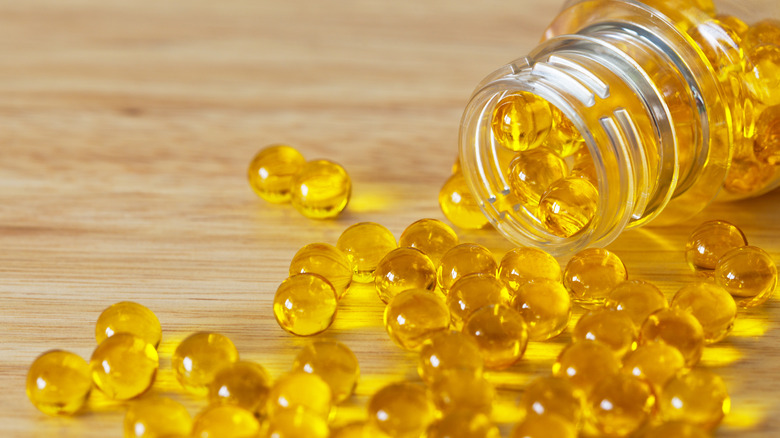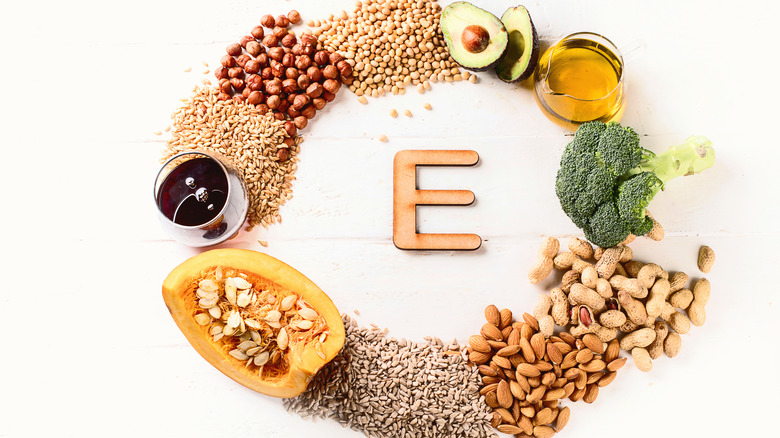What Does Fat-Soluble Mean In Vitamins?
Your body needs vitamins to stay healthy and function properly. Most of us can get the recommended amount of vitamins from the foods we eat and being outside in the sun even helps your body make vitamin D. But each vitamin is absorbed and stored in your body in a unique way. The two main types of vitamins are fat-soluble and water-soluble (via Medical News Today). They're both important types of nutrients, but they come from specific sources and your body uses them differently.
Foods that are higher in fat tend to be rich in fat-soluble vitamins like vitamin A, D, E, and K (via Healthline) — and these vitamins are absorbed more easily by your body if you eat them with fat. Once they're in your bloodstream, they are stored in your liver and your adipose, or fatty, tissue (via National Cancer Institute). For example, vitamin A is needed for bodily functions like vision, immunity, bone growth, and skin health. It can be found in animal sources like cheese, butter, eggs, and liver (via University of Michigan Health). Plant sources like dark, leafy green vegetables and dark orange fruits and vegetables also contain vitamin A. Vitamin D, which is also found in animal sources like egg yolks, fish, and fortified dairy products, helps your body absorb enough calcium to keep bones strong.
Be careful with how much you take
The antioxidant vitamin E helps keep blood vessels open and supports immunity (via Medical News Today). Good places to find vitamin E include almonds, sunflower seeds, peanuts, spinach, and mango. And if you want to make sure your body is protected from bleeding too much if you get a cut, vitamin K is the nutrient to look for. The blood-clotting powerhouse can be absorbed by eating foods like kale, spinach, butter, and egg yolks.
While most people can get plenty of fat-soluble vitamins through a varied, healthy diet, some may still need to take supplements to reach the recommended amounts each day. Spending most of your time indoors could lead to a vitamin D deficiency. If this is the case, you may want to consider taking a supplement if your doctor approves. When eating a low-fat meal, it's recommended that you add a fat or oil to make sure your body can absorb enough of these essential fat-soluble vitamins (via Healthline). Once they've been absorbed and stored, fat-soluble vitamins are released much more slowly than other types of vitamins (via University of Michigan Health). That means you don't need to consume them as often as other types of vitamins. If you do choose to take supplements with fat-soluble vitamins in them, be careful to only take the recommended amount since fat-soluble vitamins can reach toxic levels quicker than other types.


